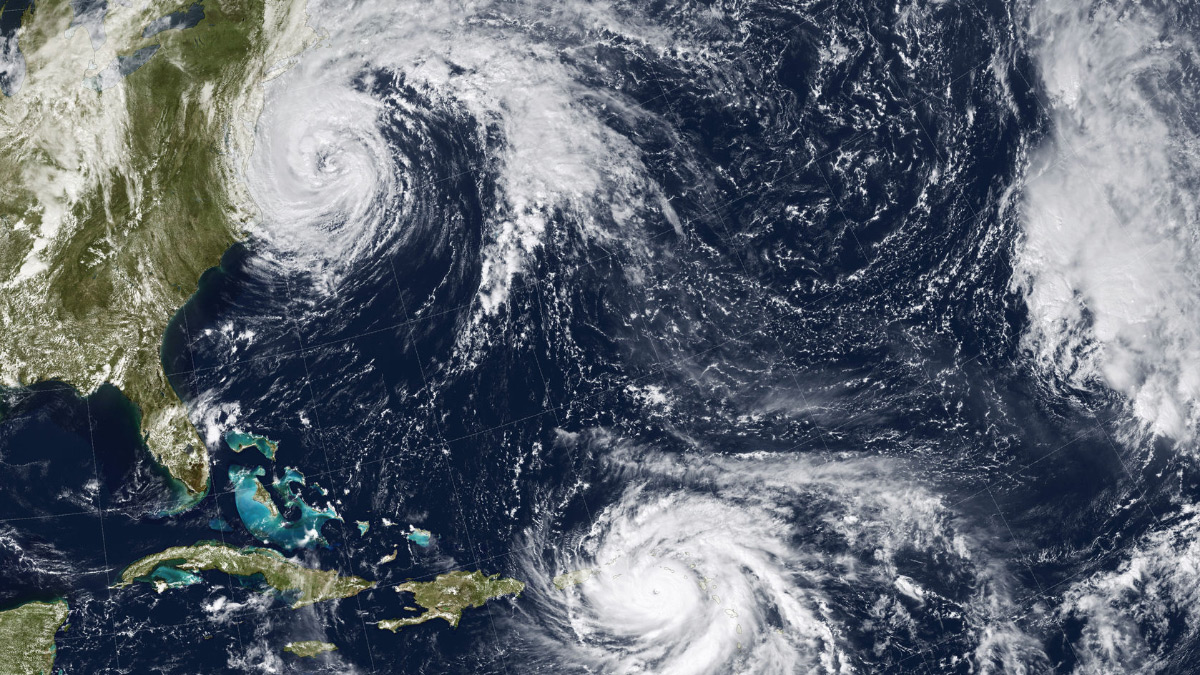While Hurricane Florence was raging in the southeastern United States, Typhoon Mangkhut was ripping through the Philippines and Hong Kong. Although the two disasters were on opposite sides of the planet, they both illustrate the same economic lesson: capitalist economic systems, which foster economic development, are the best defense against natural disasters.
Although Florence hit shore as a category 1 hurricane with only 90 mph winds, it dumped nearly three feet of rain on parts of North Carolina and two feet of rain on South Carolina, leading to massive flooding. Moody’s Analytics estimates that property damage will total $17 billion to $22 billion. By Tuesday, September 18 the death toll had risen to 32.
Meanwhile Super Typhoon Mangkhut hit the Philippines with 150 mph winds (enough for a category 5 hurricane if it were in the Atlantic) and moved on to Hong Kong with a storm surge which brought flood waters to their highest levels since 1904.
The damage in Hong Kong is massive. Some estimate that Mangkhut could result in more than $1 billion in insurance claims. Remarkably, while some lives must have been lost, there have been no news reports of storm deaths. Instead news stories reported that roughly 200 to458 people arrived at hospitals seeking treatment for storm-related injuries.
The situation in the Philippines is different. As of Tuesday the death count stood at 74 with fears that it would rise by at least 40 more as rescue workers uncover bodies of poor miners and their families who had taken shelter in an abandoned building and had been buried by an avalanche.
The Philippines, Hong Kong, and the United States differ in many important ways. One important difference is their economic systems and how those systems have impacted development.
Hong Kong has been rated the most free-market economic system in the world since rankings began in 1970. The United States currently ranks fifth and in most years since 1970 was in the top three. Meanwhile the Philippines ranks 39th today and for much of the last 50 years was in the bottom half of the rankings. As recently as 2009 it was way down at 81st.
A country’s economic freedom is strongly linked to its income, growth, and a host of other desirable socioeconomic outcomes. Literally hundreds of papers have been written on the topic. Hong Kong and the United States are rich, with an average income of around $60,000. In contrast, close to 10 percent of the Philippines’ population lives on less than $1.90 a day.
The greater economic development that accompanies economic freedom increases a society’s ability to weather natural disasters. Early warning systems, stronger buildings, and better infrastructure to aid in evacuation and emergency response all come with increased incomes.
Economist Matthew Kahn published a study that examined annual deaths from disasters in 73 countries between 1980 and 2002. He found that rich countries didn’t experience fewer or less severe natural disasters than poorer countries but that richer nations experience less death from their disasters. As he put it, “Economic development provides implicit insurance against nature’s shocks.”
Gallup released a national poll while the waters were still rising in the Carolinas. It indicated that 51 percent of young people and 57 percent of Democrats view socialism positively. Now would be a good time for people to appreciate how capitalism mitigates natural disasters because if U.S. policy trends toward socialism, we’ll eventually all end up over our heads when disaster strikes.












